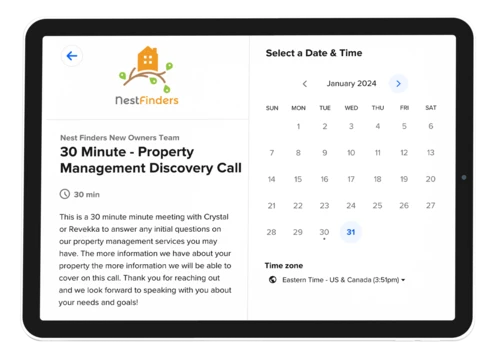While incentives keep tenants compliant with lease agreements, security deposits act as a financial safeguard for landlords. Such deposits can cover damages caused by the tenant. However, there are restrictions. Landlords cannot combine this with other funds and tenants cannot use the security deposit for a periodic rental payment unless explicitly indicated in the lease.
This deposit must be collected and returned on time to ensure a balance between landlord-tenant interactions. The governing laws surrounding deposits in Florida are designed to protect the interests of both parties' interests and reduce misunderstandings.
Let’s tackle what landlords can deduct from a security deposit in Florida.
Understanding Security Deposit Deductions in Florida
Like any other state in the nation, Florida has rules and regulations for deposit deductions that can be used to maintain a property’s value. This is often used to fix broken windows, outstanding rent owed, and other expenses.
Landlords can make deductions based on specific reasons:
- Unpaid Rent
- Cleaning Services
- Unpaid Utility Bills
- Excessive Tenant Damages
When issues like this arise, you must provide a written notice within 30 days of the tenant's lease termination before withholding rent. If a landlord fails to do so, you forfeit your right to claim deductions. In addition, make sure to include a detailed list of any deductions and the remaining balance of the tenant.
Note that keeping this process transparent is the key to avoiding legal disputes. A landlord must respect a tenant’s right to dispute deductions. False accusations against your tenants can cost you your reputation plus more.
Allowable Deductions
Typically, landlords deduct from deposits due to tenant’s negligence or lease violations. As for Florida statutes, the following deductions are permitted:
- Repairing Damage: A tenant will be responsible for paying for damages beyond normal wear and tear including:
- Large holes in walls or doors
- Broken furniture, fixtures, and appliances
- Flooring scratches and burn marks
- Cleaning Fees: A landlord can charge cleaning costs to tenants if they leave a unit in an unsanitary condition. This will consist of:
- Cleaning heavy grime from bathrooms and kitchens
- Removing cluttered trash and debris left behind
- Replacing Missing or Damage Items: As part of the lease agreement, charges are required to replace items such as:
- Missing keys or curtains
- Damaged furnished rentals
- Broken light fixtures
Any cost explicitly mentioned in the lease that requires professional maintenance can be deducted. Clearly defining allowable deductions holds bad tenants and landlords alike accountable.
Prohibited Deductions
Residential landlords in Florida cannot deduct for normal wear and tear under state law. Deducting false claims isn’t going to work, thus understanding what is allowed is just as crucial as knowing what is not:
- Minor scuffs or marks on walls.
- Fading or natural wear of carpets due to foot traffic.
- Slight discoloration of paint due to sunlight exposure.
Through this, tenants can guard their funds and ensure that a landlord’s deductions are lawfully fair. Remember that these guidelines apply to landlords and, most importantly, to tenants' rights as well.
Florida Security Deposit Limitations
In contrast to other states, Florida landlord-tenant laws do not require a legal cap for the amount of charge a landlord can ask from a tenant. This holds a great advantage for landlords as they can freely set their minimum and maximum fees for their rental units. However, additional charges must stay aligned with the latest market conditions and tenant screening criteria.
As a landlord, here’s what you must do:
- Return the security deposit funds within 15 days at the end of the tenancy. If the landlord refuses to do so, the tenant may seek legal advice to challenge the landlord’s conduct.
- Send a written notice of deductions to the tenant within 30 days, justifying the reasons. The landlord must return the full amount if they fail to provide the notice within the timeframe.
When a tenant moves out and leaves significant damage to your rental unit, you have the autonomy to release a reasonable notice within 30 days to explain why deductions are being withheld for repair. Although there is no limit to the deposit money, you still need to comply with the given timeframe and legal documentation for handling the funds.
Lease Agreement Requirements
Although Florida law allows oral agreements for apartment leases, a written lease will save you from issues and miscommunications. A written rental agreement is typically ideal for tenants staying for 12 or more months. Outlining a comprehensive rental agreement should include the following:
- The amount of the deposit and its intended uses
- Specific reasons and conditions for deductions
- Proper management of funds
You may face legal consequences if these are not indicated as you make deductions. A tenant can sue you for declaring irrelevant claims that pose unlawful agreements and discrimination.
Florida Landlord-Tenant Laws
Adhering to the Florida Residential Landlord Tenant Act is crucial for both the landlord and tenant. This means that a tenant is entitled to a private, peaceful occupancy of a dwelling unit for legitimate uses. Handling the deposit attached to the rental agreement should include:
- Deposit and advance rent
- Deposit claims and notices
- Deposit return timeframe
Tenants may withhold rent from the rental property until needed repairs are complete. Setting clear expectations creates mutual understanding from both sides. The responsibilities and procedures around deposits outline the constant effort to nurture a positive landlord-tenant relationship.
Landlord’s Handling of Deposit Funds
Beyond collecting rent payments, landlords are also responsible for placing tenant funds in a secure Florida banking institution. Here are three distinct ways to secure them:
- Non-interest-bearing Account: Designate tenant deposits to a separate bank account from your personal property. Landlords are prohibited from using the funds until it is scheduled for release.
- Interest-bearing Account: Sharing the wealth with your tenant is up to you. This account grants tenants to receive 75% of the annualized interest or a 5% simple interest rate.
- Surety Bond: Posting a bond with the county clerk ensures that deposits are available as required for either the whole amount or partial deductions.
These market-driven amounts enforce strict protections for tenant funds. A landlord has the responsibility to disclose where the deposit is held within 30 days of receiving the funds.
Tenant's Right to Dispute Landlord Claims
Tenants have the right to dispute any deductions they believe are unfair or unjustified. Landlord-tenant law requires them to:
- Provide a written notice specifying the reason
- Negotiate a settlement to resolve the dispute amicably
- Seek legal recourse in small claims court to recover the deposit
Tenant’s documentation of their move-in and move-out can strengthen their case. Knowing this can guide landlords to take the most appropriate approach to deal with tenant feuds.
Bottom Line
Florida’s laws uphold both landlord and tenant rights in claiming a deposit. Keeping an unbiased and equitable policy helps landlords manage rental agreements with confidence while receiving complete trust from their tenants.
If you’re looking for professional assistance from a seasoned Florida property manager, you’re in the right place. Nest Finders Property Management has been committed to serving with integrity since 2004. We continuously aid landlords, property owners, and real estate investors for better management.
Learn more about Florida Security Deposit Laws and contact us today for a free consultation!
Additional Resources
Is Jacksonville, Florida Landlord Friendly? The Laws That Matter
Florida Rental Laws - An Overview of Landlord-Tenant Rights in Jacksonville




